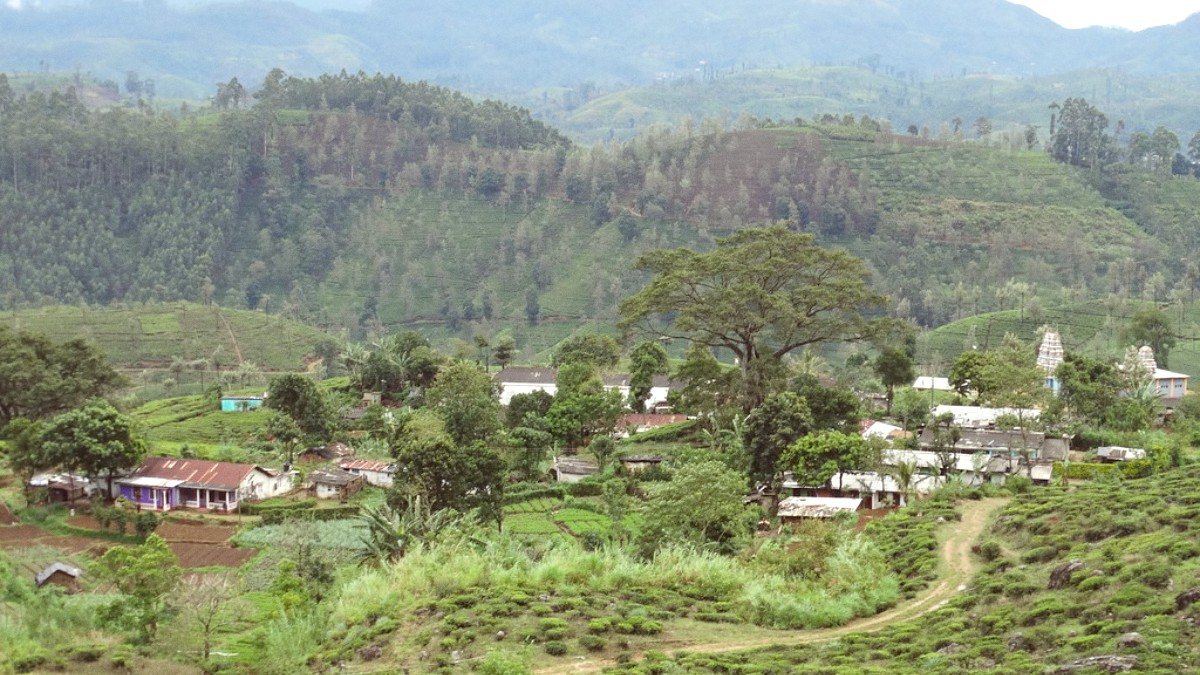
The Hill Country, Sri Lanka
Elements from Indian, Malay, Arab, and European traditions create a distinct culinary identity.
This blend presents a cuisine known for its bold flavors, aromatic spices, creamy coconut milk, and fresh herbs. Each dish shares a story of the island's history and diverse influences.
Tends to be milder than Southern or Northern dishes, with an emphasis on fresh vegetables, pulses, and local ingredients from the hill country.
Traditionally, food is eaten with the right hand. Cutlery is common in tourist restaurants. Sharing dishes is customary.
Breakfast: 7-9 AM. Lunch (main meal): 12-2 PM. Dinner (lighter): 7-9 PM.
The national dish, a plate of rice served with 3-5 different curries, sambol, and papadum.
Curries vary daily, including dhal, potato, pumpkin, fish, or chicken.
Popular street food: chopped flatbread with vegetables, egg, or meat, stir-fried on a griddle.
The rhythmic chopping sound is characteristic. Found at street food stalls.
Bowl-shaped fermented rice flour pancakes (Hoppers), often with an egg. Noodle-like steamed rice flour strings (String Hoppers).
Hoppers are for breakfast or dinner; String Hoppers are a lighter alternative.
Samosas, Vadai (fried lentil donuts), various fried snacks, cutlets, patties, roti wraps.
Curd and Treacle (buffalo curd with palm treacle/honey) is a simple, traditional treat.
Luxury hotels often host fine dining with international and refined Sri Lankan dishes. Mid-range restaurants offer comfort, varied menus, and good value.
Local 'rice and curry' shops, small cafes, and street food stalls. The Kandy Central Market area holds many vendors.
Kandy Central Market for fresh produce and some prepared food. Restaurants offer Indian, Chinese, and some Western cuisine.
Sri Lankan cuisine is naturally very vegetarian-friendly. Many curries are vegetable or lentil-based. Vegan options are widely available, as coconut milk forms the base of many curries.
Specify your dietary preferences when ordering to avoid meat or dairy.
Halal food is widely available, especially in Muslim-owned establishments. Look for "Halal" signs. Kosher options are rare and may only be found in specialized international hotels or by pre-arrangement.
Communicate needs for specific meals.
Rice-based cuisine is naturally GF, but cross-contamination can happen. Inquire about ingredients.
Carry a translation card explaining dietary needs due to language barriers.
HappyCow helps locate vegetarian/vegan restaurants.
Communicate with hotel staff; many can tailor meals if informed in advance.
Dine in a traditional Kandyan home for an authentic meal experience.
Gives a true local flavor.
Enjoy a historical dining experience in a colonial-era tea planter's bungalow.
A step back in time with your meal.
Find and book food tours and other culinary experiences to deepen your appreciation for local flavors.
Consider our affiliate partner for diverse activity bookings.
Direct interaction with local families provides insights into daily lives and customs.
Arranged visits to local villages or craft centers.
Seek operators that prioritize local communities and ethical practices.
Ensure your visit positively impacts locals.
Homestays offer authentic insights into daily routines and traditions.
A understanding of local culture.
Book various cultural and outdoor activities through a trusted platform.
Find tours, workshops, and unique experiences for your visit.
GetYourGuide for reliable tour and ticket bookings.
Don't hesitate to sample street food from reputable vendors.